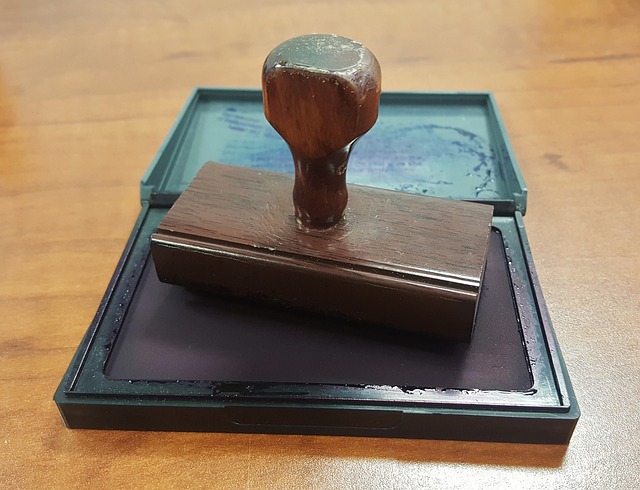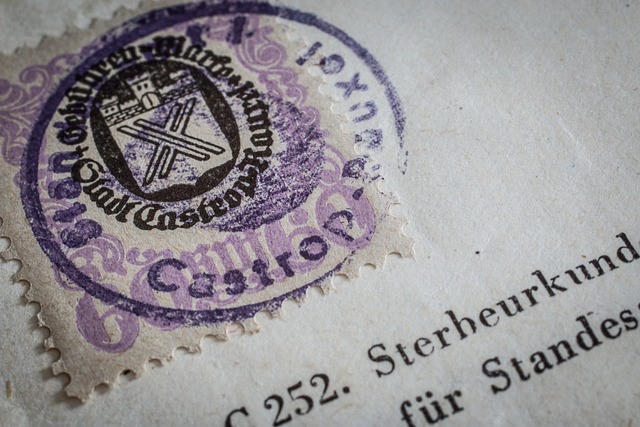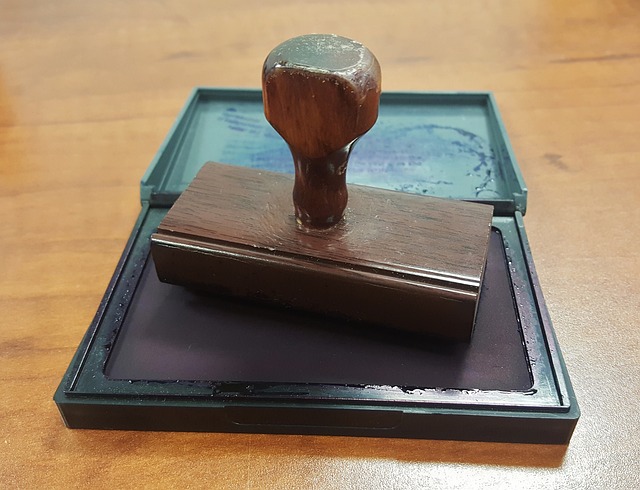When applying for immigration benefits in the UK, it is imperative to submit all foreign language documents after they have been accurately translated into English or Welsh and notarized. The UK's Home Office enforces this requirement strictly, insisting on the use of professional notarised translation services UK to ensure legal and administrative texts are precise. These services must be provided by certified translators with expertise in both languages and a credential from recognized bodies like the Institute of Translation and Interpreting (ITI) or the Chartered Institute of Linguists (CIOL). The notarisation process, performed by a notary public, confirms the authenticity of the translator's qualifications and the accuracy of the translation. This step is crucial for UK immigration authorities to accept and process visa applications, citizenship petitions, and other related submissions without delay. Opting for reputable notarised translation services UK ensures that your documents adhere to legal standards and facilitate a smoother immigration experience.
navigating the complexities of immigration to the UK necessitates meticulous attention to detail, particularly concerning document authentication. This article elucidates the critical role of notarised translation services UK in the immigration process, ensuring that your foreign-language documents are legally recognised and facilitate a smoother entry into the country. We delve into the essential requirements for certified translations, the intricacies of obtaining these translations, and how to select a trustworthy service provider. By understanding the legal validity and recognition of notarised translations within the UK’s immigration system, applicants can confidently present their documentation, paving the way for successful immigration outcomes.
- Understanding the Necessity of Notarised Translation Services for Immigration in the UK
- The Role of Certified Translators in UK Immigration Procedures
- Key Documents Requiring Notarisation for UK Visa Applications
- The Process of Obtaining a Notarised Translation in the UK
- The Legal Validity and Recognition of Notarised Translations in the UK's Immigration System
- Selecting a Reliable and Accredited Notarisation Service Provider for Immigration Needs
- Tips for Ensuring the Accuracy and Compliance of Notarised Translations for UK Immigration
Understanding the Necessity of Notarised Translation Services for Immigration in the UK

Navigating the immigration process in the UK requires meticulous attention to detail, particularly when it comes to documentation. A key component of this process is ensuring that all foreign language documents are accurately translated and notarised. Notarised translation services UK play a pivotal role in this context, as they authenticate the translator’s identity and confirm the translation’s accuracy and completeness. This certification is crucial for immigration purposes because it assures UK authorities that the translated documents reflect the original content faithfully. Failure to provide proper translations can lead to delays or denials in visa applications, citizenship petitions, and other immigration matters. By engaging professional notarised translation services UK, individuals can confidently submit their paperwork, knowing that each document has been vetted and is compliant with the legal standards expected by the Home Office. This due diligence not only expedites the immigration process but also instils trust in the authenticity of the applicant’s intentions and documents, which is paramount when navigating the complexities of UK immigration law.
The Role of Certified Translators in UK Immigration Procedures

When individuals seek to immigrate to the UK, they often encounter a significant hurdle: the necessity for their documents to be accurately translated into English or Welsh. This is where notarised translation services UK come into play, providing a critical link in the immigration process. Certified translators hold a pivotal role, as they are responsible for converting legal and administrative texts from various languages into their English or Welsh equivalents with precision and authority. The UK Home Office mandates that all foreign documents, including birth certificates, educational credentials, marriage certificates, and other vital records, be notarised by a professional translator who is accredited by the relevant UK authorities. This ensures that the translated content reflects the original document’s authenticity and legal standing. Notarised translation services UK guarantee that each translation undergoes a thorough verification process, where the translator’s credentials and the translation itself are scrutinized. This notarisation confirms to the UK immigration authorities that the translated documents are accurate and authentic, which is crucial for immigration applications to be processed without delay or complication. Utilising such services not only streamlines the immigration procedure but also instils confidence in the applicant’s intentions and documentation, thereby facilitating a smoother transition into UK life.
Key Documents Requiring Notarisation for UK Visa Applications

When applying for a UK visa, applicants must submit a range of documents that are often required to be notarised and translated into English or Welsh, depending on the specific visa requirements. Notarised translation services in the UK play a crucial role in this process, ensuring that all translations meet the stringent standards set by the Home Office. Key documents typically include passports, birth certificates, marriage certificates or proof of marital status, academic qualification certificates, criminal record certificates, and employment contracts or letters of employment. Each document must be a true and accurate representation of its original form to avoid delays or issues with visa processing. Utilising professional notarised translation services in the UK is essential for maintaining the integrity of these documents and facilitating a smooth application process. These services are adept at providing translations that comply with the UK’s legalisation requirements, thereby enhancing the chances of successful visa applications. It is imperative for applicants to engage with reputable notarised translation services in the UK to ensure all translations adhere to the prescribed standards and are accepted by the authorities without complications. This due diligence can significantly reduce the risk of application rejection due to document discrepancies or mistranslations, which can be costly and time-consuming to rectify.
The Process of Obtaining a Notarised Translation in the UK

In the UK, individuals undergoing immigration processes are often required to present documents that have been accurately translated into English by certified professionals. This is where notarised translation services in the UK become paramount. The process of obtaining a notarised translation begins with identifying a translator who is not only proficient in both the source and target languages but is also accredited by a relevant authority, such as the Chartered Institute of Linguists (CIOL) or the Institute of Translation and Interpreting (ITI). Once a qualified translator has been selected, the actual translation can proceed. Upon completion, the translated document must be reviewed and endorsed by a professional translator with a relevant notarial stamp. This notarisation process involves a notary public verifying the identity of both the translator and the client to ensure authenticity. The notary will then affix their official seal or stamp to the translation, certifying that it is a true and accurate representation of the original document. Subsequently, the translated and notarised document must be submitted to the relevant UK immigration authorities as part of the immigration application package. This process not only confirms the translation’s reliability but also complies with the legal requirements set forth by the UK government for official documentation in immigration cases. Utilising notarised translation services UK ensures that all translated documents carry the weight and credibility needed for official purposes, thereby facilitating a smoother and more secure immigration process.
The Legal Validity and Recognition of Notarised Translations in the UK's Immigration System

Within the UK’s immigration system, the submission of accurately translated documents is paramount for both individuals and families applying for visas, residency permits, and citizenship. The legal validity of notarised translation services in the UK is underpinned by strict regulations that ensure all foreign language documents are precise and authoritative. Notarised translations are required to have been completed by a professional translator who has been appointed or accredited by a relevant authority, such as the Institute of Translation and Interpreting (ITI) or the Chartered Institute of Linguists (CIL). This notarisation process involves a qualified translator verifying the translation’s accuracy, thereby providing UK immigration authorities with the assurance that the translated content is an authentic representation of the original document. The Home Office recognises these notarised translation services UK as valid for legal and administrative purposes within the UK’s immigration context, which is crucial for the successful processing of applications and avoiding delays or complications due to misunderstandings arising from language barriers.
Selecting a Reliable and Accredited Notarisation Service Provider for Immigration Needs

When engaging with notarised translation services for immigration purposes, it is imperative to select a provider that offers both reliability and accreditation. The United Kingdom has stringent regulations governing official documents, and translations must adhere to these standards to be accepted by immigration authorities. A reliable notarisation service provider in the UK will have professional translators who are adept at accurately conveying the meaning of your documents while ensuring compliance with Home Office requirements. These experts not only possess linguistic prowess but are also familiar with the legal nuances of translation, which is crucial for immigration applications. Additionally, they should be associated with a recognised body, such as the Institute of Translation and Interpreting (ITI) or the Chartered Institute of Linguists (CIOL), to guarantee the quality and validity of their services. This accreditation ensures that your translations are not only legally sound but also accepted by government bodies, thus facilitating a smoother immigration process.
Accredited notarised translation services in the UK play a pivotal role in the immigration journey of individuals and families. They provide peace of mind by offering certified translations that stand up to scrutiny from immigration officers. The notarisation aspect further bolsters the credibility of your documents, as it involves a notary public verifying the identity of the translator and confirming that the translation is accurate and complete. This adds an additional layer of assurance that your translated documents will be accepted, whether for visa applications, citizenship purposes, or other immigration-related processes. When choosing a provider for such critical tasks, it is wise to opt for one with a proven track record, positive client testimonials, and a commitment to maintaining the highest standards in translation and notarisation. This due diligence can save you valuable time and reduce potential complications during your immigration process.
Tips for Ensuring the Accuracy and Compliance of Notarised Translations for UK Immigration

When engaging with notarised translation services in the UK for immigration purposes, accuracy and compliance are paramount. To ensure the translations accurately reflect the original documents and adhere to legal standards, it is crucial to select a professional and reputable provider. Begin by verifying that the translation agency is authorised by the UK’s Foreign, Commonwealth & Development Office (FCDO) or its designated consulates or embassies. This authorisation assures that the translations will be accepted by UK immigration authorities. Additionally, opt for translators who are native speakers of both the source and target languages to guarantee a nuanced and precise translation. They should also have specific expertise in legal translation to handle the complex language often found in immigration documents.
Furthermore, each translated document must come with a statement of accuracy and a notarised declaration from the translator affirming that the translation is complete and faithful to the original. The notarising officer’s stamp and signature are indispensable for the translation to be legally recognised. It is also advisable to request a certified copy of the original document along with the notarised translation as part of your immigration application to demonstrate due diligence and commitment to adhering to UK immigration requirements. By carefully selecting a trustworthy notarised translation service in the UK, you can navigate the immigration process with confidence, knowing that your documents are accurate and compliant.
When navigating the complexities of immigration to the UK, presenting accurate and officially recognised documentation is paramount. The necessity for notarised translation services in this context cannot be overstated—these services are an indispensable bridge between individuals and the UK’s stringent immigration requirements. Certified translators play a critical role in this process, ensuring that key documents are accurately translated and carry the legal weight necessary for visa applications. By understanding the process of obtaining a notarised translation within the UK, applicants can confidently meet the standards set forth by immigration authorities. The validity and recognition of these translations are essential, as they affirm the authenticity of the information presented. For those seeking to immigrate to the UK, selecting a reliable and accredited notarisation service provider is a wise step towards successful assimilation into their new home. Adhering to the tips for ensuring accuracy and compliance in notarised translations will further facilitate this transition, ultimately leading to a smoother and more secure immigration experience. Notarised translation services UK stand as a testament to the country’s commitment to due process and fair treatment of its immigrants, fostering an environment where legal documentation is clear, accurate, and respected.
